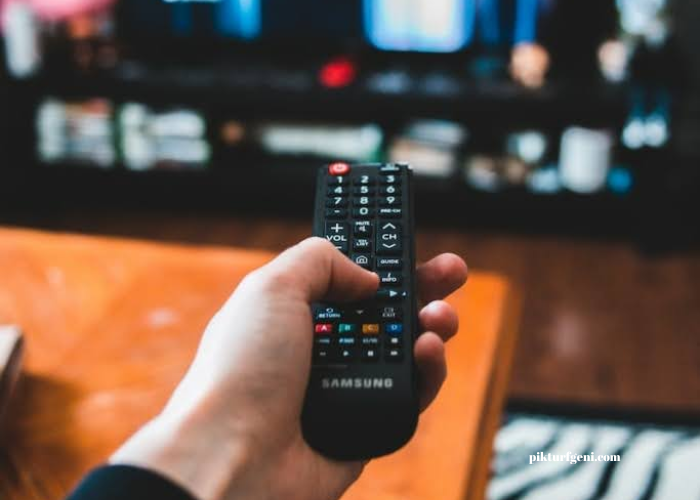Once upon a time, diverse characters were often relegated to the sidelines, serving as mere tokens rather than fully fleshed-out individuals. Thankfully, the tides are turning. Shows like “Brooklyn Nine-Nine” have managed to strike the delicate balance of humor and genuine representation, with characters like Captain Raymond Holt breaking stereotypes and becoming icons in the process.
The shift towards more nuanced portrayals has been pivotal. It’s not about showcasing diversity for diversity’s sake but rather integrating characters seamlessly into the narrative tapestry. Take “Master of None” as an example, where Aziz Ansari’s character, Dev, navigates life and love while challenging stereotypes about Indian-Americans. This isn’t just a character; it’s a relatable human experience.
BREAKING THE MOLD: UNCONVENTIONAL NARRATIVES
Diversity doesn’t stop at ethnicity; it extends to gender, sexual orientation, and even physical abilities. “Pose” is a groundbreaking example, providing a platform for trans and LGBTQ+ communities. The show doesn’t just tell their stories; it invites audiences to empathize, celebrating the diversity of the human experience.
“Game of Thrones,” despite its fantasy setting, made strides in disability representation through Tyrion Lannister, played by Peter Dinklage. Tyrion’s wit and cunning challenged preconceptions about dwarfism, proving that a character’s depth is not defined by physical stature.
THE CHALLENGES OF AUTHENTIC REPRESENTATION

CLICHÉS AND STEREOTYPES: A PERENNIAL BATTLE
While progress is evident, the battle against clichés and stereotypes persists. The portrayal of certain ethnic or cultural groups can still veer into caricature territory. Shows like “2 Broke Girls” received criticism for relying on outdated and offensive stereotypes, showcasing the need for more nuanced storytelling.
Creators need to move beyond the surface-level traits of diverse characters. We’re not checkboxes on a casting list; we’re multifaceted individuals with unique stories to tell. The success of shows like “Atlanta” lies in their ability to showcase the richness of Black culture without falling back on tired tropes.
WHITEWASHING: AN UNFORTUNATE TRADITION
The controversial practice of whitewashing continues to rear its head, depriving minority actors of roles that should rightfully be theirs. The casting of Scarlett Johansson as Major Motoko Kusanagi in “Ghost in the Shell” sparked outrage, underscoring the industry’s tendency to default to familiar faces rather than seeking authentic representation.
Conversations around whitewashing are essential, and audiences are demanding change. Social media has become a powerful tool for activism, with hashtags like #OscarsSoWhite and #WhitewashedOut pushing for accountability and change in the industry.
THE ROAD AHEAD: BALANCING ACT AND BOLD CHOICES
SHOWRUNNERS AS ADVOCATES
As TV series enthusiasts, it’s crucial to recognize the role of showrunners in shaping the landscape. The success of shows like “Insecure,” created by and starring Issa Rae, showcases the impact of having diverse voices at the helm. When those behind the scenes reflect the diversity they wish to portray, authenticity shines through.
THE RESPONSIBILITY OF VIEWERS
Our responsibility as viewers goes beyond passive consumption. Engaging in conversations about representation and calling out problematic portrayals can shape the narrative. Social media platforms have given audiences a collective voice, and it’s heartening to see fans advocating for more inclusive storytelling.
THE UNEXPLORED FRONTIERS
While progress is evident, there are still stories waiting to be told. Indigenous representation, for example, remains largely unexplored. Shows like “Reservation Dogs” are breaking ground, but there’s a wealth of untold stories waiting to be shared. As consumers, we should support and celebrate these ventures, encouraging networks to take more risks.
CONCLUSION: A DIVERSE FUTURE
In my four years of dissecting the world of TV series, I’ve seen the narrative evolve from token gestures to authentic representations. The industry is at a crossroads, where it can either embrace the richness of diversity or revert to the comfort of the status quo.
As consumers, we have the power to demand change, celebrating shows that get it right and holding accountable those that fall short. And naturally, amplify your reach to a broader audience through captivating YouTube content by visiting SocialGreg’s platform to seamlessly share your insights with countless cinephiles and enthusiasts alike.
The challenges are real, but so is the potential for growth. Television, with its vast reach and influence, can be a powerful tool for social change. Let’s continue championing diverse stories, dismantling stereotypes, and paving the way for a TV landscape that truly reflects the beautiful mosaic of humanity. After all, isn’t that what storytelling is all about?
